
I. Introduction
In astrology, the Sun is one of the most important celestial bodies, representing the core of our individuality and consciousness. As the center of our solar system, the physical Sun provides warmth, light, and energy to all living beings on Earth. Similarly, the astrological Sun symbolizes our inner fire, vitality, self-expression, and sense of identity and purpose.
In this article, we will explore the role of the Sun in Astrology in depth, examining its essential characteristics, the 12 Sun signs and their meanings, the Sun’s aspects and transits, its significance in mundane astrology, and practical applications for personal astrology practice. Whether you are new to astrology or a seasoned practitioner, understanding the Sun’s symbolism and influence can help you gain deeper insights into your personality, relationships, and life path.
Throughout the article, we will draw upon various sources of astrological wisdom, including traditional and modern astrological texts and personal observations and experiences. We invite you to join us on this journey of discovery as we explore the multifaceted nature of the Sun in Astrology and its impact on our lives.
II. The Sun in Astrology: Basic Characteristics
The Sun is the most important celestial body in astrology, representing the core of our identity, consciousness, and vitality. In the birth chart, the Sun’s placement and aspects reveal our fundamental character, purpose, and life force. Here are some of the basic characteristics of the Sun in astrology:
Symbolism and meaning: The Sun has many positive qualities, such as creativity, confidence, leadership, and joy. It symbolizes the light of consciousness, the center of the self, and the source of life. The Sun represents our ego, willpower, and ability to express ourselves authentically.
Correspondences to the physical Sun: The Sun in astrology corresponds to the physical Sun, the center of our solar system and the primary source of light and heat for Earth. In astrology, the Sun is associated with fire, the energy of transformation, inspiration, and passion. The Sun also corresponds to the heart chakra, the center of love and compassion in the human body.
The Sun’s role in the Zodiac and the birth chart: In astrology, the Sun rules the sign of Leo, which is associated with self-expression, creativity, and leadership. The Sun is also exalted in the sign of Aries, which is associated with courage, independence, and initiation. The placement of the Sun in the birth chart reveals our essential nature, a sense of purpose, and potential for self-realization. The sign and house of the Sun can indicate the areas of life where we feel most alive, passionate, and fulfilled.
The Sun’s position in the birth chart is determined by the date, time, and location. The Sun changes signs approximately every 30 days, and it takes a year to complete an entire cycle around the Zodiac. The Sun’s aspects to other planets in the birth chart reveal the dynamics of our ego, our relationship to authority, and our potential for growth and transformation. The Sun’s transits through the Zodiac indicate the areas of life where we are likely to experience growth, challenges, and opportunities for self-discovery.
Understanding the basic characteristics of the Sun in astrology can help us connect with our inner fire, express our creativity, and align with our true purpose. In the next section, we will explore the 12 Sun signs and their meanings and how they relate to the Sun’s symbolism and influence.
III. The Sun Signs: Interpretations and Traits
In astrology, the Sun signs represent the 12 basic archetypes of human personality, each with its own strengths, weaknesses, and characteristics. The Sun sign is determined by the position of the Sun in the Zodiac at the time of birth, and it is one of the most well-known and popular elements of astrology. Here are some interpretations and traits of each Sun sign:
Aries (March 21 – April 19): Aries is a fire sign that is associated with courage, initiative, and adventure. Aries is known for being independent, impulsive, competitive, and having a solid sense of self. Aries is a natural leader who loves to take risks and try new things.
Taurus (April 20 – May 20): Taurus is an earth sign associated with stability, sensuality, and practicality. Taurus is known for being patient, reliable, and determined and for having a solid connection to the material world. Taurus is a lover of beauty, comfort, and security.
Gemini (May 21 – June 20): Gemini is an air sign associated with communication, curiosity, and versatility. Gemini is known for being witty, sociable, and adaptable and for having a restless mind. Gemini is a natural communicator who loves to learn and share information.
Cancer (June 21 – July 22): Cancer is a water sign associated with emotion, sensitivity, and nurturing. Cancer is known for being intuitive, empathetic, and protective and for having a solid connection to family and home. Cancer is a natural caretaker who loves to create a safe and comfortable environment.
Leo (July 23 – August 22): Leo is a fire sign associated with creativity, leadership, and self-expression. Leo is known for being confident, generous, and charismatic and for having a strong sense of identity. Leo is a natural performer who loves to shine and inspire others.
Virgo (August 23 – September 22): Virgo is an earth sign associated with organization, service, and analysis. Virgo is known for being detail-oriented, practical, and helpful and for having a solid work ethic. Virgo is a natural problem-solver who loves to improve things and be of service.
Libra (September 23 – October 22): Libra is an air sign associated with harmony, beauty, and diplomacy. Libra is known for being charming, fair-minded, and cooperative and for having a strong sense of justice. Libra is a natural mediator who loves to create balance and beauty in the world.
Scorpio (October 23 – November 21): Scorpio is a water sign associated with intensity, passion, and transformation. Scorpio is known for being secretive, powerful, and magnetic and for having a strong intuition. Scorpio is a natural detective who loves to uncover hidden truths and transform themselves and others.
Sagittarius (November 22 – December 21): Sagittarius is a fire sign associated with adventure, exploration, and philosophy. Sagittarius is known for being optimistic, adventurous, philosophical, and having a strong sense of purpose. Sagittarius is a natural seeker who loves to expand their horizons and explore the world.
Capricorn (December 22 – January 19): Capricorn is an earth sign associated with discipline, ambition, and responsibility. Capricorn is known for being hard-working, practical, and organized and for having a strong sense of duty. Capricorn is a natural leader who loves to succeed and build a legacy.
Aquarius (January 20 – February 18): Aquarius is an air sign associated with innovation, originality, and freedom. Aquarius is known for being independent, unconventional, and visionary and for having a strong sense of social justice. Aquarius is a natural humanitarian who loves challenging the status quo and creating a better world.
Pisces (February 19 – March 20): Pisces is a water sign associated with empathy, creativity, and spirituality. Pisces is known for being intuitive, dreamy, and compassionate and for having a strong connection to the divine. Pisces is a natural artist who loves to express their imagination and sensitivity.
It’s important to note that while the Sun sign is a significant part of the birth chart, it is not the only factor determining a person’s personality and life path. Other elements, such as the Moon sign, rising sign, and planetary aspects, also play a crucial role in shaping a person’s character and destiny.
In the next section, we will explore the Sun’s aspects and transits and how they can further deepen our understanding of the Sun’s influence on our lives.
IV. The Sun’s Aspects and Transits: Dynamics and Effects
In addition to its placement in the birth chart and its association with the 12 Sun signs, the Sun in astrology also interacts with other planets and points through its aspects and transits. These dynamics reveal essential insights into the Sun’s influence on our lives and our potential for growth and transformation. Here are some of the key aspects and transits of the Sun in astrology:
Aspects to other planets: The Sun forms aspects to other planets in the birth chart, which indicate the dynamics of our ego, our relationship to authority, and our potential for growth and transformation. For example, the Sun’s conjunction with a planet can amplify its energy and express it more personally. In contrast, its square to a planet can create tension and conflict that requires resolution. The Sun’s opposition to a planet can bring up issues of balance and integration, while its trine to a planet can facilitate harmony and flow.
Transits through the Zodiac: The Sun transits through the Zodiac and creates a new cycle of growth and transformation each year. As the Sun moves through each sign, it illuminates different areas of life and brings up new opportunities for self-realization and challenges for growth. The Sun’s transit through the natal house where it is located can also indicate a period of renewal and transformation in that area of life. For example, if the Sun is located in the 10th house of career, its transit through that house can bring up issues of identity, purpose, and success in the professional realm.
Solar returns: A solar return chart is created for each birthday, revealing the astrological influences present in the upcoming year. The solar return chart is calculated when the Sun returns to its natal position. It indicates the themes, challenges, and opportunities that will be present in the coming year. The solar return chart can also reveal the areas of life where we will experience growth and transformation and the challenges we need to overcome to realize our potential.
Understanding the Sun’s aspects and transits can help us gain deeper insights into our personal growth and transformation. By working with the energies of the Sun and other planets, we can align with our true purpose, overcome challenges, and express our creativity and vitality. In the next section, we will explore the significance of the Sun in mundane astrology and how it influences political and social trends.
V. Mundane astrology: The Sun’s influence on world events
In addition to its role in personal astrology, the Sun is significant in mundane astrology, which explores the relationship between astrological influences and world events. The Sun represents leadership, authority, and power in mundane astrology, and its cycles and movements can significantly impact political and social trends.
For example, in mundane astrology, the Sun’s position in the sign of Aries is associated with new beginnings, pioneering efforts, and revolutionary changes. The Sun’s position in the sign of Leo is associated with strong leaders, creative expression, and dramatic power shifts. The Sun’s position in the sign of Scorpio is associated with intense transformation, hidden agendas, and secrets coming to light.
The Sun’s transits through the houses of the mundane chart can also reveal the areas of life where significant events and changes are likely to occur. For example, suppose the Sun transits through the 10th house of the mundane chart, which is associated with government and leadership. In that case, it can bring up issues related to power struggles, changes in leadership, and social unrest.
Understanding the Sun’s role in mundane astrology can provide important insights into the political and social trends of the time. It can help us navigate the challenges and opportunities that arise on a collective level. By aligning with the positive qualities of the Sun, such as creativity, leadership, and compassion, we can contribute to the collective growth and transformation of our society.
In the final section of this article, we will summarize the main points about the Sun in astrology and provide practical applications for integrating this knowledge into personal astrology practice.
VI. Mythology Meanings of the Sun in Ancient Egypt, Ancient Greece, and Rome
The Sun has played a significant role in the mythologies and religions of many ancient cultures, including Ancient Egypt, Ancient Greece, and Rome. In these cultures, the Sun was often associated with deities and spiritual forces that represented the power and majesty of the heavens. Here are some of the mythology meanings of the Sun in these ancient cultures:
Ancient Egypt
In Ancient Egypt, the Sun was associated with the god Ra, the creator and ruler of the world. Ra was depicted as a falcon or a man with a sun disk on his head and was considered the most important deity in the Egyptian pantheon. Ra represented the power of the Sun to give life, light, and order to the world and was also associated with resurrection and the afterlife.
Ancient Greece
In Ancient Greece, the Sun was associated with the god Apollo, the god of light, music, and prophecy. Apollo was depicted as a handsome youth with golden hair and was considered the embodiment of intellectual and artistic pursuits. Apollo represented the power of the Sun to illuminate the mind and inspire creativity and was also associated with healing and purification.
Ancient Rome
In Ancient Rome, the Sun was associated with the god Sol, who was the patron of the Sun and the source of life and energy. Sol was depicted as a charioteer driving the Sun across the sky and was considered the giver of light and warmth to the Earth. Sol represented the power of the Sun to bring vitality and abundance to the world and was also associated with victory and triumph.
VII. Conclusion and Practical Applications
Throughout this article, we have explored the significance of the Sun in astrology, from its essential characteristics to its role in the 12 Sun signs, its aspects and transits, and its influence on mundane astrology. The Sun represents our inner fire, vitality, self-expression, and sense of identity and purpose. Understanding the Sun’s symbolism and influence can help us gain deeper insights into our personality, relationships, and life path.
Here are some practical applications for integrating this knowledge into personal astrology practice:
- Explore your Sun sign: By understanding the basic traits and characteristics of your Sun sign, you can gain insights into your strengths, weaknesses, and life purpose. You can also explore the other elements of your birth chart, such as your Moon sign and rising sign, to gain a more nuanced understanding of your personality and life path.
- Track the Sun’s transits: By paying attention to the Sun’s transits through the Zodiac and its aspects to other planets, you can anticipate the themes, challenges, and opportunities that will likely arise in your life. You can use this knowledge to align with your true purpose, overcome challenges, and express your creativity and vitality.
- Explore mundane astrology: By understanding the Sun’s role in mundane astrology, you can gain insights into the political and social trends of the time and contribute to our society’s collective growth and transformation.
- Work with the positive qualities of the Sun: By cultivating qualities such as creativity, confidence, leadership, and compassion, you can align with the positive energy of the Sun and manifest your highest potential. You can also explore practices such as meditation, visualization, and affirmations to enhance your connection with the inner fire of the Sun.
In conclusion, the Sun in astrology is a powerful and multifaceted symbol that represents the core of our individuality and consciousness. By understanding the Sun’s symbolism and influence, we can gain deeper insights into our personality, relationships, and life path and contribute to our society’s collective growth and transformation. We invite you to explore the Sun’s energy and express your authentic self in the world.
VIII. Read More
The sun in Zodiac signs meaning
- The Sun in Aries Meaning
- The Sun in Taurus Meaning
- The Sun in Gemini Meaning
- The Sun in Cancer Meaning
- The Sun in Leo Meaning
- The Sun in Virgo Meaning
- The Sun in Libra Meaning
- The Sun in Scorpio Meaning
- The Sun in Sagittarius Meaning
- The Sun in Capricorn Meaning
- The Sun in Aquarius Meaning
- The Sun in Pisces Meaning
The Sun in Houses Meaning
- The Sun in the First House Meaning
- The Sun in the Second House Meaning
- The Sun in the Third House Meaning
- The Sun in the Fourth House Meaning
- The Sun in the Fifth House Meaning
- The Sun in the Sixth House Meaning
- The Sun in the Seventh House Meaning
- The Sun in the Eighth House Meaning
- The Sun in the Ninth House Meaning
- The Sun in the Tenth House Meaning
- The Sun in the Eleventh House Meaning
- The Sun in the Twelfth House Meaning



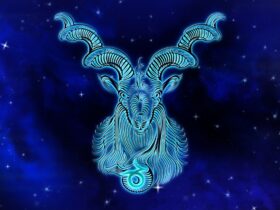
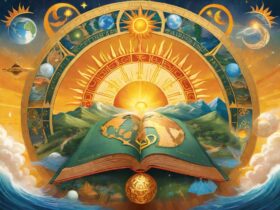
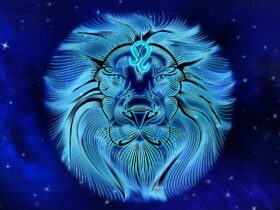
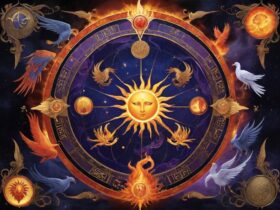
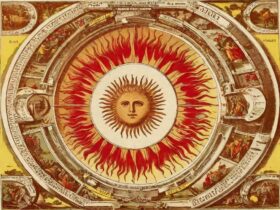
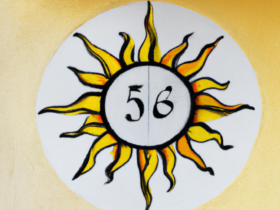
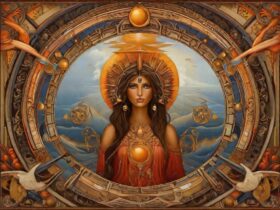

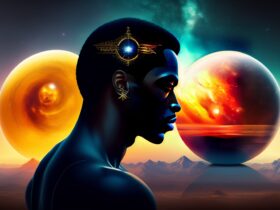




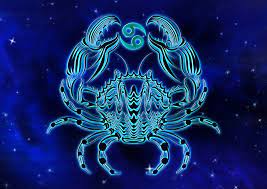

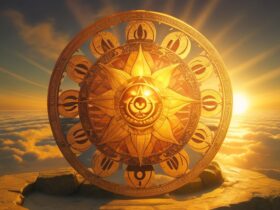

Leave a Reply